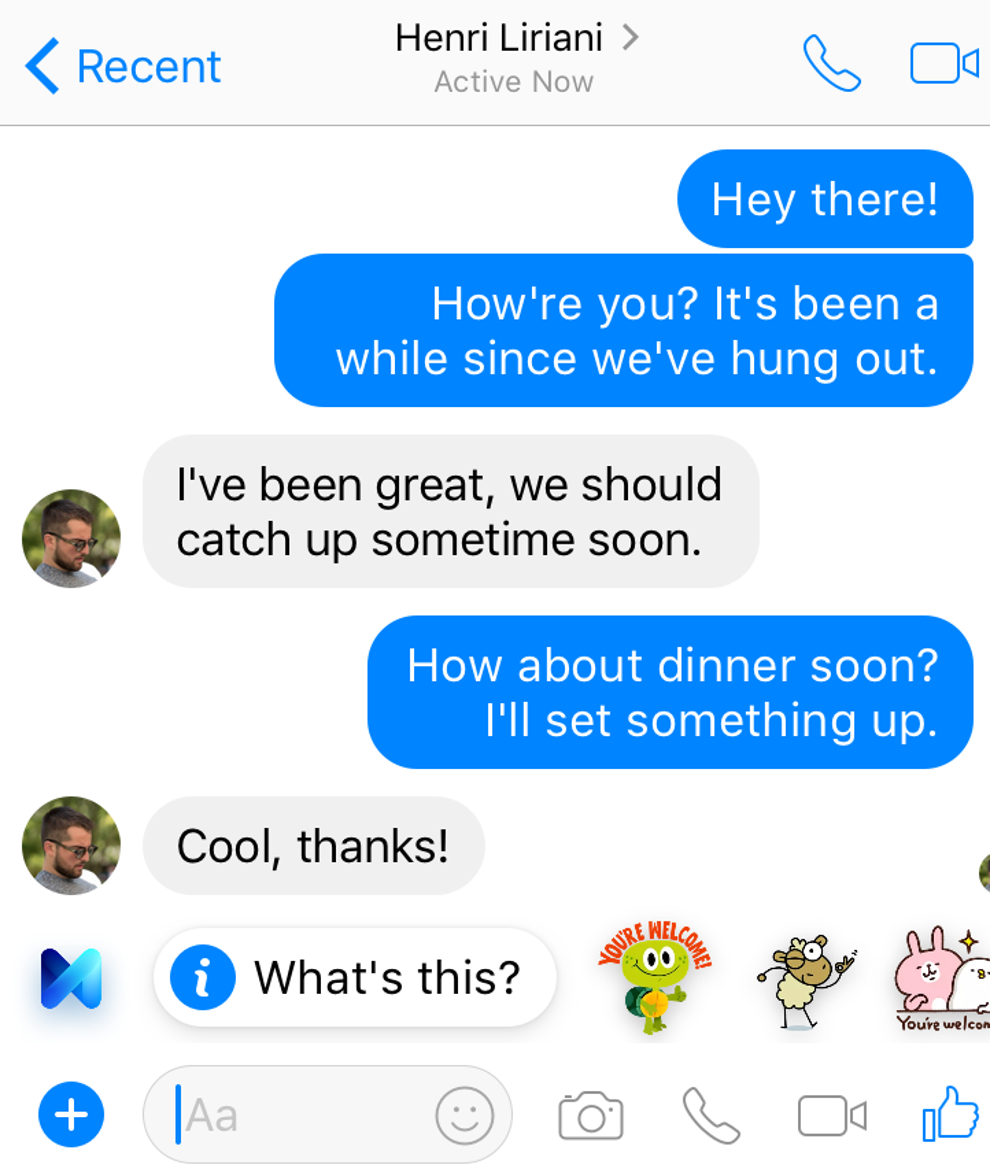Facebook has long been working on the development of an AI-powered virtual assistant called ‘M’ and it has only a limited number of users have been granted access to the same. Officially announced over a year ago, Facebook had released a preview of the AI assistant to enable it to gather information and learn from its interactions.
Now, the virtual assistant is being topped up with a new feature called ‘M Suggestion,’ which will make it work in a manner similar to the fun and quirky Google Assistant on Allo. Only available to a handful of test users in U.S, this feature will show the M assistant in conversations and suggest responses or stickers based on the context of the previous messages. The only differences being that Facebook M wouldn’t be as smart as Assistant — where the smart reply feature can even suggest captions for images shared with you.
M suggestions, as described by the virtual assistant, “are powered by machine learning that tries to recognize when people are doing specific tasks so that it can provide helpful suggestions. This is a different experience than the concierge-like experience of M that you are currently using.”
For example: If your friend shoots you a question asking ‘Where are you?’ then the M assistant would analyze the said words and relate it to the context of location. Thus, the virtual assistant will suggest you to share your location in Messenger or display a set of stickers — that are apt for replying in that particular situation. The company’s efforts in this direction have been confirmed by Messenger head David Marcus in conversation with Buzzfeed News. He further adds,
Think of this as a version of M that can actually help suggest the right capabilities at the right time. Hopefully with this side of it, we’ll have a path to opening it up to everyone fairly quickly.
If the internal test which accommodates a handful of beta testers (what is Facebook doing!? beta within a beta!?) is successful then Marcus believes that the development of the M assistant can be sped up. The automated version of the service could be rolled out to all billion users on the Messenger platform, once a more lightweight and capable version of the assistant is churned out.
The availability of the same within a conversation can also boost developer interest in the messaging platform as they would then be able to build third-party services for the M assistant to suggest when certain statements are typed out. The virtual assistant would then show a taxi services and restaurant suggestions right within the chat window — thus, emulating Google Allo in the process. We’re direly waiting for the public rollout of this AI-powered chatbot, so we can pit it against competitors and test its might.
The Tech Portal is published by Blue Box Media Private Limited. Our investors have no influence over our reporting. Read our full Ownership and Funding Disclosure →







